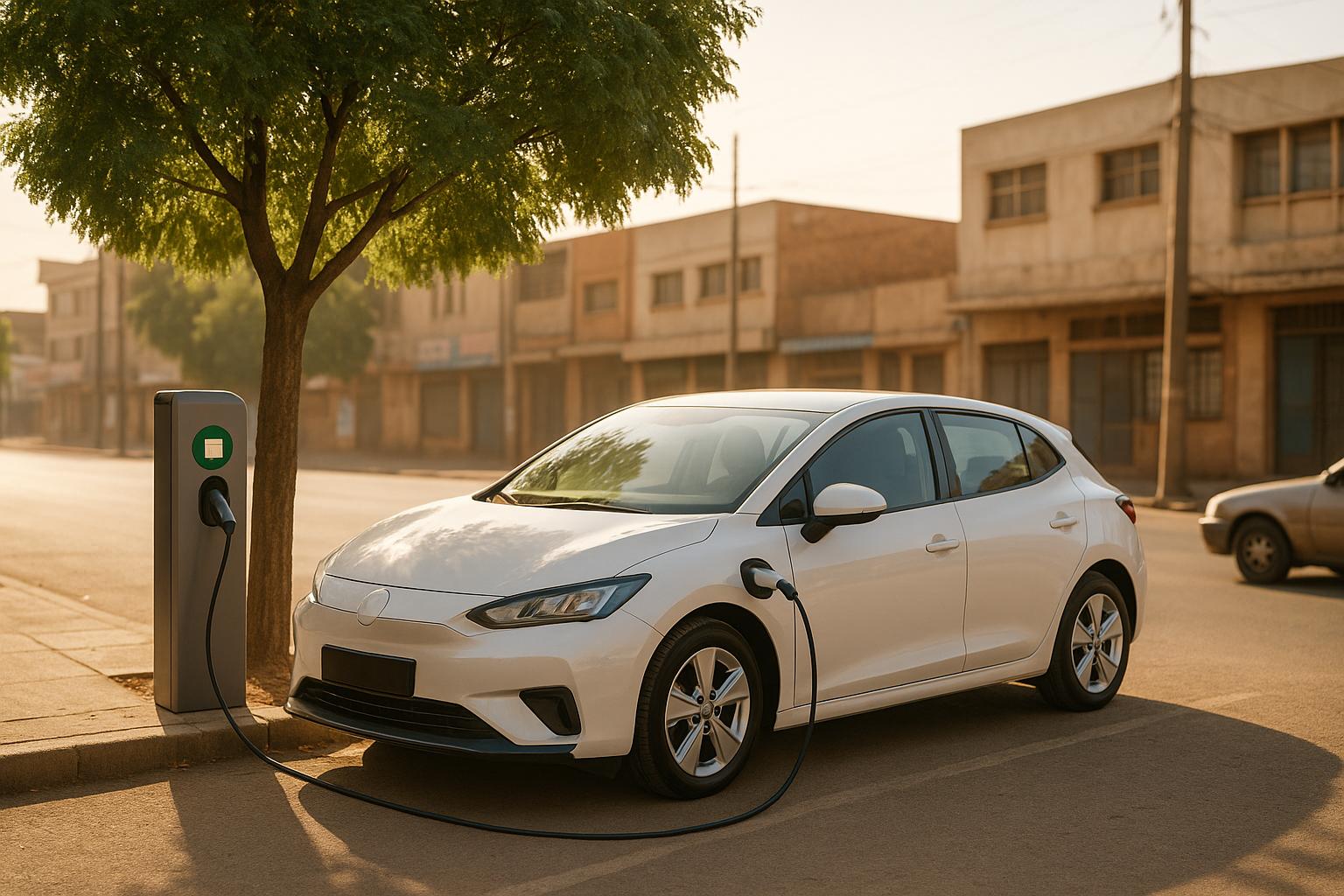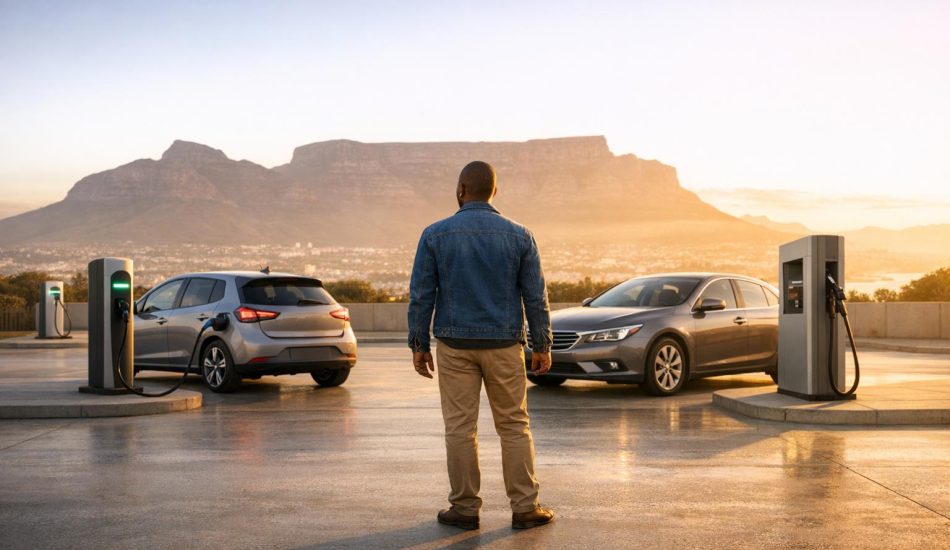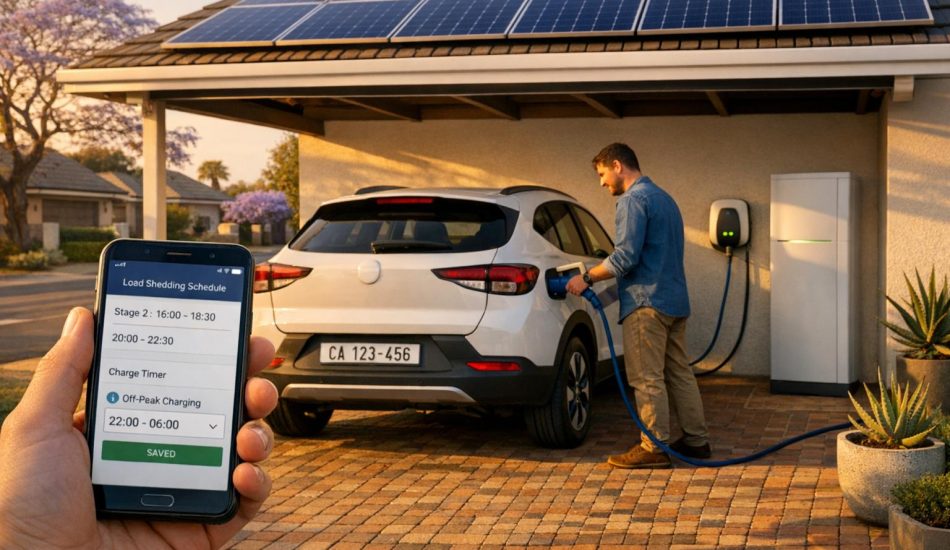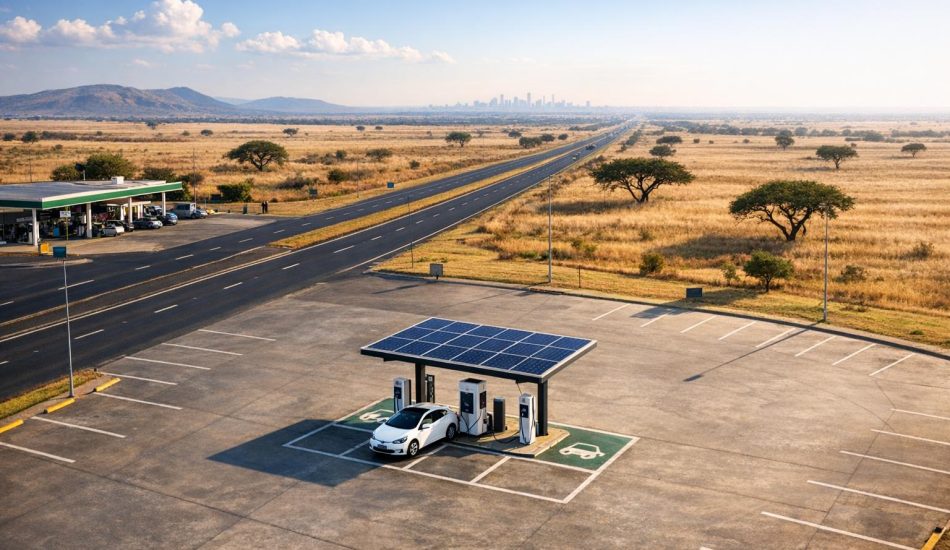
Owning an electric vehicle (EV) in Zambia comes with trade-offs. While EVs offer lower running costs and zero emissions, challenges like limited charging infrastructure and higher upfront costs remain. Gas-powered cars, on the other hand, are more affordable initially, with an extensive fuel network and easier maintenance, but come with recurring fuel expenses and pollution concerns.
Key Takeaways:
- Electric Vehicles: Lower running costs, cleaner air, but limited charging stations and higher purchase prices.
- Gas-Powered Vehicles: Easier to refuel, lower initial cost, but higher long-term fuel expenses and environmental impact.
| Aspect | Electric Vehicles | Gas-Powered Vehicles |
|---|---|---|
| Upfront Cost | Higher | Lower |
| Running Costs | Lower (electricity cheaper) | Higher (fuel cost fluctuates) |
| Maintenance | Less frequent, specialized tech | Easier, local expertise |
| Refueling/Charging | Limited charging stations | Extensive fuel network |
| Environmental Impact | Zero emissions | Pollutes air |
| Convenience | Requires planning for charging | Quick refueling, no planning |
Your choice depends on your driving habits, budget, and access to charging facilities. EVs suit city drivers with predictable routes, while gas-powered cars are better for long-distance travel and spontaneous trips.
Driving The First Electric Car In Zambia:BYD Dolphin 🐬 In Zambia
1. Owning an Electric Vehicle (EV)
Owning an electric vehicle (EV) in Zambia comes with its own set of hurdles and prospects, largely tied to the country’s developing charging network.
The Current State of Charging Infrastructure
As Zambia begins its journey toward electric mobility, the charging infrastructure is still in its infancy. Instead of widespread implementation, efforts are currently focused on research and planning to determine the best models for infrastructure development. For households and private users with lower mileage needs, experts recommend a "broad Charging-Only access" model to meet their requirements effectively.
2. Owning a Gas-Powered Vehicle
Gas-powered vehicles continue to dominate Zambia’s roads, offering a reliability that’s backed by a well-established infrastructure. While electric vehicles are gaining attention, traditional fuel-powered cars remain the go-to choice for many Zambians, thanks to their proven track record and predictable challenges.
Fuel Accessibility and Infrastructure
One of the biggest advantages of gas-powered vehicles in Zambia is the extensive fuel infrastructure. Fuel stations are scattered across cities and major highways, ensuring that drivers can refuel with ease. This convenience eliminates the "range anxiety" often associated with electric vehicles, making long-distance travel far less stressful.
That said, fuel costs are a recurring burden for car owners. Gasoline prices in Zambia are influenced by global oil market trends and government subsidies, which means they can fluctuate unpredictably. These price swings can make it challenging for drivers to manage their monthly transportation budgets, as sudden increases can significantly impact household expenses.
Maintenance and Repair Considerations
When it comes to upkeep, gas-powered vehicles have a clear advantage. Their mechanical systems are well-understood by local mechanics, who are equipped to handle everything from routine oil changes to more complex engine repairs. This widespread expertise ensures that maintenance is not only accessible but also affordable.
Additionally, Zambia has a thriving used car market, which makes sourcing replacement parts relatively simple. Unlike electric vehicles, which often require specialized components that may need to be imported, gas-powered cars benefit from the availability of local spare parts. This familiarity and ease of repair make traditional vehicles a practical choice for many Zambian drivers.
Environmental and Health Impact
Despite their practical benefits, gas-powered vehicles have a noticeable downside when it comes to the environment. Their exhaust emissions release harmful pollutants like carbon monoxide, nitrogen oxides, and particulate matter into the air. In urban areas such as downtown Lusaka, where traffic congestion is a daily reality, these emissions can significantly degrade air quality.
The health implications of this pollution are far-reaching. Poor air quality in high-traffic zones can lead to respiratory issues for both drivers and pedestrians, adding a public health concern to the environmental impact of gas-powered vehicles.
Practical Daily Use
For everyday use, gas-powered vehicles offer a level of convenience that’s hard to beat. Refueling is quick and straightforward, taking only a few minutes, which means drivers don’t have to plan their routes around fuel stops. There’s no need to worry about battery life or charging stations, making these vehicles ideal for spontaneous road trips or long commutes.
Another key advantage is their affordability. Gas-powered cars, especially used ones, come with lower upfront costs compared to electric vehicles. Financing options through local banks further ease the path to ownership, making these vehicles an accessible choice for middle-income families across Zambia.
sbb-itb-99e19e3
Pros and Cons
In Zambia’s growing automotive market, deciding between electric and gas-powered cars comes with its own set of trade-offs. Electric vehicles (EVs) offer lower running costs but require careful charging considerations, while gas-powered cars provide quick refueling but come with fluctuating fuel expenses.
| Aspect | Electric Vehicles | Gas-Powered Vehicles |
|---|---|---|
| Upfront Cost | Higher purchase price with limited financing options | Lower purchase price with well-established financing options |
| Running Costs | Lower due to current electricity rates | Fuel costs vary based on market conditions |
| Maintenance | Fewer moving parts mean less frequent servicing, but specialized technicians are needed | Regular maintenance is widely available locally |
| Infrastructure | Limited charging stations require careful route planning | Fuel stations are readily available for quick refueling |
| Environmental Impact | Zero direct emissions improve local air quality | Exhaust emissions contribute to urban pollution |
| Daily Convenience | Longer charging times require planning | Fast refueling reduces downtime and eliminates range anxiety |
| Parts Availability | Limited local stock of EV parts may result in delays | Established spare parts market ensures easier repairs |
| Resale Value | Resale value remains uncertain in this emerging market | More predictable resale value due to a mature used car market |
These comparisons shed light on the practical considerations for Zambian drivers. Electric vehicles stand out with their zero direct emissions, making them a cleaner choice for urban areas, while gas-powered cars are more accessible and familiar, especially for long-distance travel.
Ultimately, the decision depends on your driving habits and priorities. EVs are ideal for city commuters with access to charging at home or work, while gas-powered vehicles might be better suited for those who frequently travel long distances or need the convenience of quick refueling.
Conclusion
To wrap up, owning an EV in Zambia comes with clear perks like lower running costs and zero emissions. However, it also presents challenges, such as limited charging infrastructure and higher upfront expenses.
For urban commuters with predictable routes and access to home charging, EVs can be a smart choice. The savings on fuel and maintenance can help balance out the initial investment. On the other hand, gas-powered vehicles remain a reliable option for long-distance travel, thanks to the widespread availability of fuel stations, lower purchase costs, and easy access to spare parts.
When deciding, take a close look at your daily driving habits, access to charging facilities, budget, and comfort level with newer technology. It’s also worth calculating potential savings on fuel and maintenance to see if an EV aligns with your financial goals.
As Zambia’s EV market continues to grow, early adopters enjoy the benefits of lower running costs and contributing to cleaner air. Others might prefer to wait for better charging infrastructure and more affordable options. Ultimately, the best choice is the one that fits your lifestyle and budget.
FAQs
What steps is Zambia taking to improve electric vehicle charging infrastructure?
Zambia is making strides in improving its electric vehicle (EV) landscape by focusing on open charging connector standards and defining baseline requirements for battery swap systems. These measures are designed to build a charging network that’s easier to use and more accessible for EV owners.
On top of that, the government has rolled out tax incentives to boost EV adoption. Import taxes on electric vehicles have been eliminated (though VAT still applies), while EVs produced locally are fully exempt from VAT. These steps highlight Zambia’s dedication to advancing sustainable transportation and expanding its EV infrastructure.
Are the long-term savings of owning an electric car worth the higher upfront cost?
While electric vehicles (EVs) might come with a higher upfront price tag compared to traditional gasoline-powered cars, they can save you money in the long run. Here’s why: electricity is typically cheaper than gasoline, and EVs are much simpler machines. They don’t need oil changes, have fewer moving parts, and even experience less wear on components like brakes.
For drivers in Zambia, these long-term savings can help balance out the initial investment, especially as charging networks expand and government policies begin to encourage EV use. That said, it’s essential to think about your own driving patterns, how easily you can access charging stations, and the cost of electricity in your area before deciding if an EV fits your lifestyle.
What are the environmental and health benefits of using electric cars in Zambia’s cities?
Electric cars have the potential to transform air quality in Zambia’s cities by cutting down on the harmful pollutants released by gasoline and diesel vehicles. Cleaner air means fewer respiratory and cardiovascular health problems for people living in urban areas.
Beyond the health advantages, electric vehicles play a key role in reducing greenhouse gas emissions, which is essential in addressing climate change. Shifting to EVs could pave the way for Zambia’s cities to become cleaner and healthier places to live, ensuring a better environment for generations to come.




